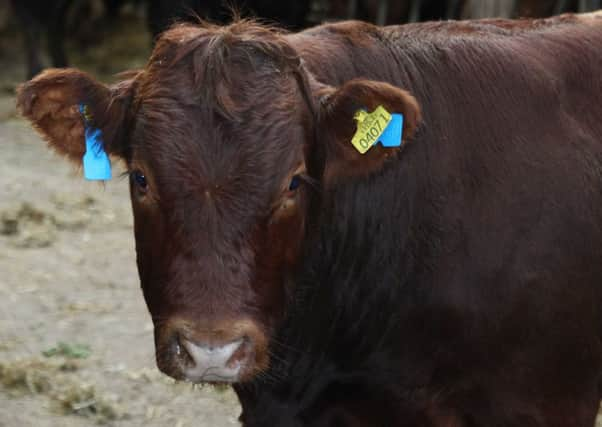The cost of poor respiratory health


For suckler calves the stress of weaning and housing can weaken the immune system and pre-dispose the animal to infection. In addition to the production losses from an infection there is also the cost of labour and treatment. Furthermore the impact of poor respiratory health can extend beyond the immediate costs of medicine, vet costs, associated weight loss and extra labour, all estimated at £82 for a beef suckler calf.
A moderate case of pneumonia in a beef suckler calf at five-six months of age can be associated with 72 g reduction in daily liveweight gain; that’s 22kg over a 10 month finishing period. A severe or chronic case of pneumonia at five-six months of age may reduce daily liveweight gain by 202g or 61kg over 10 months and result in a carcass downgrade. Based on these facts, the economic returns from safeguarding against a case of pneumonia have been estimated at £128 per calf for a moderate case and £263 for a severe case.
Advertisement
Advertisement
Viruses such as BRSv, PI3v and IBR can act individually or in combination to cause significant lung and airway damage reducing the animal’s resistance to secondary bacterial infection. These three viruses are important primary pathogens. Once the viruses have caused the primary damage, the bacteria can enter as secondary invaders resulting in extensive damage to the lungs. BVD virus can also act as an important trigger because it suppresses the immune system and opens the door for the other agents that multiply and cause disease. So by protecting against these four key viruses, we can have a dramatic effect on calf pneumonia outbreaks.
Home born suckler calves, weaned and housed in autumn, can benefit from the protection provided by Rispoval ®4 which protects animals against BRSv, Pi3v, BVDv and IBR. For cattle over three months of age two doses of vaccine should be given three-four weeks apart and, ideally, calves should complete the vaccination course at least two weeks before any stressful event such as weaning or housing. Protection lasts for up to six months, ensuring protection throughout the winter housing period.
For bought-in calves not vaccinated pre-sale the challenge lies in protecting them quickly enough. For a quicker onset of immunity calves can be vaccinated with an intranasal vaccine which only requires a single dose start.
Rispoval® IntraNasal protects against BRSv within just five days and against PI3v within 10 days. Protection from a single dose lasts for 12 weeks. Where ongoing protection against BRSv and PI3v is required, a further dose of Rispoval® IntraNasal can be given to ensure calves are covered for a full six months.
Advertisement
Advertisement
In calves older than 10 weeks of age a single dose of Tracherine® will provide immunity against IBR within just four days, with protection lasting a full six months.
Autumn born suckler calves which are born just before or during the winter housing period, need a vaccine which works fast to provide protection and minimise viral loads in the shed.
Calves can be vaccinated with a single dose of Rispoval® IntraNasal from just nine days of age providing rapid cover against the two key viral causes of pneumonia in young calves (BRSv and PI3v) for up to 12 weeks. Where required Rispoval®4 can be used, from 12 weeks, to provide ongoing broad, long lasting protection.